Recovery is Real, and it's going Global.
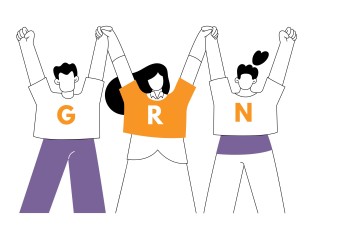
Recovery from alcohol and other substance use disorders is an active voluntary process and a health outcome. Recovery is an individual’s continual growth that most often involves support networks, and that builds recovery capital to address the biological, psychological, social, and spiritual disturbances that characterize substance use disorders. Recovery is an ongoing process of growth to achieve the outcome of a substance-free life which allows an individual to reach their full potential.
Recovery includes, but is not limited to, the following factors:
- The aim of improved quality of life and enhanced overall wellness as identified by the individual, including freedom from other compulsive behaviors/addictions/dependencies;
- An individual’s consistent pursuit of abstinence from the substances or behaviors towards which pathological pursuit had been previously directed, or which could pose a risk for pathological pursuit in the future;
- Relief of an individual’s symptoms including substance craving;
- Improvement of an individual’s own behavioral control, emotional self-regulation, and freedom from external dependencies;
- Enrichment of an individual’s relationship with self and others, interpersonal skills, social connectedness, sense of purpose, belonging, and citizenship;
- Access to recovery resources that are appropriate to the individual’s culture, language, and gender;
- Acknowledging there are multiple pathways to recovery, including the use of medications to treat substance use and other co-occurring disorders;
Recovery as an outcome occurs if both remission from alcohol and other substance use disorders are achieved and maintained over time.
* This definition borrows heavily from already established definitions of recovery, including SAMHSA and ASAM.
Let GRN Help Build Your Recovery Capital
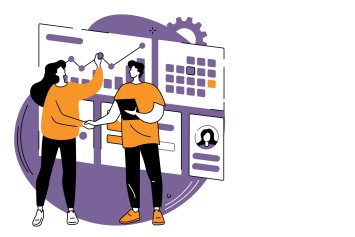
Recovery Capital includes all the strengths and resources that people bring to the recovery process; it is made up of all the assets, both material and non-material, that can help an individual start and stay in recovery. Building recovery capital is a dynamic process; it takes practice and usually includes mentoring and other forms of support from others.
Recovery capital takes many forms and can be personal, family/social, or communal in nature. Examples of “community recovery capital” are laws and policies that support recovery as well as economic conditions and opportunities that facilitate the pursuit and maintenance of recovery within the community. Recovery capital can be internal, such as a person’s individual qualities, or it can be external, such as a person’s financial resources, practical skills, different kinds of intelligence, the ability to learn from one's own mistakes, the ability to forgive oneself or others, and the capacity to embrace a sense of humor!
Peer
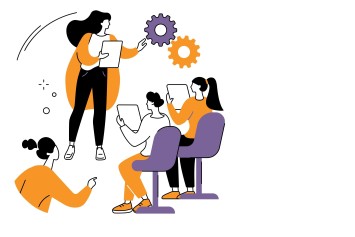
In behavioral health, a peer is usually used to refer to someone who shares the experience of living with a psychiatric disorder and/or addiction. The concept of “peer support” in mental health has its roots in the self-help movement that began in the 1970s when there was recognition that recovery involved more than symptom management. Since that time, peers who have received training in evidence-based practices, have grown to a significant portion of the workforce delivering a range of non-clinical services
Peer-Based Recovery Support Services
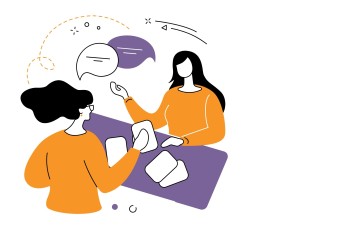
Peer-based recovery support refers to non-clinical services that are designed to help initiate and sustain individual/family recovery from severe alcohol and other drug problems and to enhance the quality of individual/family recovery. The Center for Substance Abuse Treatment’s Recovery Community Support Program identifies four types of recovery support services:
- Emotional support - demonstrations of empathy, love, caring, and concern in such activities as peer mentoring and recovery coaching, as well as recovery support groups.
- Informational support - provision of health and wellness information, educational assistance, and help in acquiring new skills, ranging from life skills to employment readiness and citizenship restoration.
- Instrumental support - concrete assistance in task accomplishment, especially with stressful or unpleasant tasks such as filling out applications and obtaining entitlements, or providing child care, transportation to support-group meetings, and clothing closets.
- Companionship - helping people in early recovery feel connected and enjoy being with others, especially in recreational activities in alcohol- and drug-free environments. This assistance is especially needed in early recovery, when little about abstaining from alcohol or drugs is reinforcing.
The fact that these functions overlap with other helping roles including that of the substance use disorder counselor raises the potential for role ambiguity and conflict. Agencies experimenting with these new roles insist that peers engaged in the delivery of recovery support services are NOT performing their roles as a sponsor, therapist/counselor, nurse/physician, or a priest/clergy (does not respond to questions of religious doctrine nor proselytize a particular religion/church). (From “Ethical Guidelines for the Delivery of Peer-based Recovery Support Services” by William L. White, MA).
Recovery Allies: If you believe in and support recovery, then you are a recovery ally!
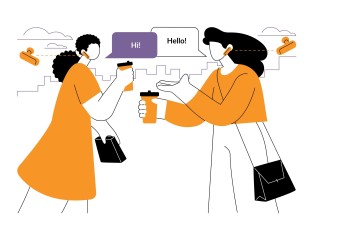
GRN recognizes two types of recovery allies
Recovery Ally (Workforce)
A recovery ally working within the recovery workforce is often called a “recovery support services professional”:
- Provides non-clinical recovery support services directly to individuals seeking and in recovery
- Usually operates in direct contact with treatment & recovery programs and those programs’ clients
Recovery Ally (Non-Workforce)
A recovery ally working outside of the recovery workforce who is often called a “recovery advocate”:
- Does not work directly with programs and clients
- Promotes the cause of recovery in general, e.g. by promoting the need for accessibility and availability of recovery support services
- Can play a critical role in reducing stigma around substance use disorders, educating the wider community, and delivering research-oriented public education about recovery
- NOTE: The same person can be both a workforce & non-workforce ALLY to promote the overall cause of recovery within their communities
